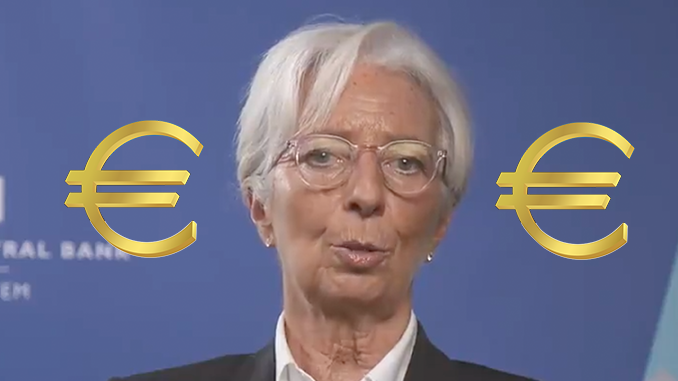
In the discussion about a possible E-Euro, the European Central Bank (ECB) wants to know what the citizens of the EU think about it. In an online survey, details such as the intended use and technological basis for such a CBDC are being discussed.
An E-Euro as a central bank supported digital currency (CBDC) is increasingly occupying the minds of financial policy makers, central banks and other market participants. In recent months, many EU countries have expressed their support for such an E-Euro, and the European Central Bank (ECB) also wants to bring about a decision. ECB President Christine Lagarde is an advocate of an E-Euro and has now addressed the public via Twitter. There she invites citizens to take part in an online survey, which you can find here.
We’ve started exploring the possibility of launching a digital euro. As Europeans are increasingly turning to digital in the ways they spend, save and invest, we should be prepared to issue a digital euro, if needed. I’m also keen to hear your views on it https://t.co/0ZuU2ZZgCp pic.twitter.com/CoY5sN7Yoz
— Christine Lagarde (@Lagarde) November 1, 2020
Background on the ECB and the E-Euro
In the survey, the ECB is first of all concerned with encircling purposes and thus also requirements for an E-Euro. In which situations would you like to use an E-Euro? Based on this, the critical question arises as to whether an E-Euro should be organized in a decentralized manner via a block chain or whether the ECB, as the central authority, should retain the possibility of intervening in transactions if necessary. Lagarde indirectly promotes the centralized solution and the survey also states that this approach to an E-Euro guarantees, for example, that it can be used even for offline transactions.
But in the crypto-scene, decentralization is the highest bid – Bitcoin (BTC) originated from the idea of creating a currency that is immune to external influences. In the EU, Estonia has spoken out in favor of a decentralized E-Euro, other countries such as France seem undecided. There, for example, the block chain of Tezos is coming into play in a test run, but the last word has not yet been spoken. In other projects on government digital currencies worldwide, a centralized approach is predominantly chosen; the central banks do not want to give up their sovereignty.
However, the survey on the E-Euro already makes one thing clear: the individual voices that want to limit a CBDC in the Euro zone as a solution for institutional users are falling behind. Lagarde is aimed at private individuals. Accordingly, an E-Euro will be available for everyone when it comes.
Conclusion: E-Euro on the home stretch?
The ECB officially needs a mandate from the Eurogroup and thus from politicians to push the E-Euro forward. Lagarde and many of her colleagues are already striving for this. In Germany, however, the head of the Bundesbank, Jens Weidmann, is still skeptical and actually wants to limit the E-Euro to the banking sector. Federal Minister of Finance Olaf Scholz, on the other hand, advocates an E-Euro. We think: Take part in the survey and indicate your preferences there. By the way, the mandatory field in the e-mail survey can also be filled out with a one-time address and you can easily switch the language from English to German. The more citizens express themselves, the clearer the mood will be.
Best place to buy Bitcoin:

Leave a Reply